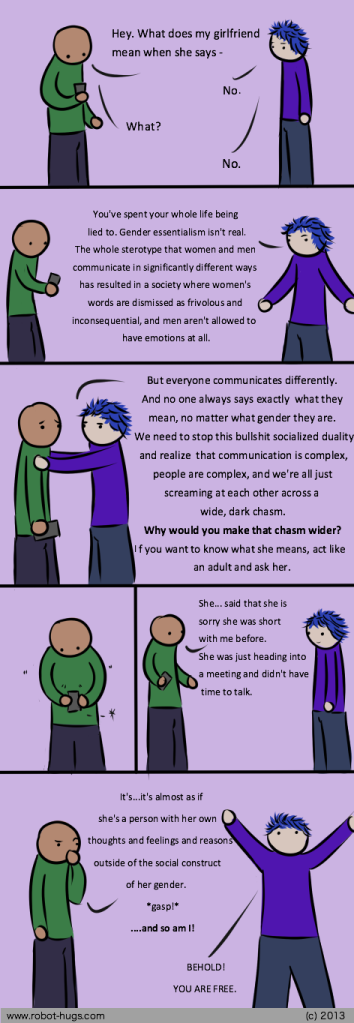By Nicole Rizzo
Here’s a brief definition of heteronormativity from Cathy J. Cohen’s insightful article “Punks, Bulldaggers, and Welfare Queens: The Radical Potential of Queer Politics?”
“By ‘heteronormativity’ I mean both those localized practices and those centralized institutions which legitimize and privilege heterosexuality and heterosexual relationships as fundamental and ‘natural’ within society” (Cohen, 440).
Why this term is relevant:
Any sort of “prescriptive ideal paradigm” has the potential to be exclusive. In the case of heteronormativity, the institutional and local practices that Cohen describes enact a type of violence against the “other” who does not conform to this hegemonic ideology. Assuming that heterosexuality is somehow the natural or essential mode of sexuality ultimately engages with Judith Butler’s critique of the “copy/origin argument” (See Butler, Judith. “Imitation and Gender Insubordination.” The Lesbian and Gay Studies Reader, edited by Henry Abelove et al., Routledge, 1993, pp. 307-20). If heterosexuality is “fundamental and ‘natural’” (Cohen 440), then non-normative forms of sexuality seemingly become “copies” of an ideal paradigm. This is a dangerous notion that replicates a series of violent and exclusionary acts against various groups of people.
This is not to say that heterosexuality is inherently bad, but rather the act of upholding one form of sexuality as the morally correct, ideal, or “natural” mode becomes incredibly problematic and does not capture the wide range of sexuality. As a dominant ideology, heteronormativity also promotes the “heterosexual nuclear family” as the ideal model for society. As a result, this restrictive notion devalues other family structures that are equally valid and supportive.
Here’s an example of heteronormative thinking:

Photo Courtesy: http://www.hamburgersnheroin.com/what-is-heronormativity/
The author of this post would like to acknowledge that the implications of heteronormativity are vastly complex and have not been covered entirely in this short blog post, which is not to say that they do not exist, since they clearly do.


